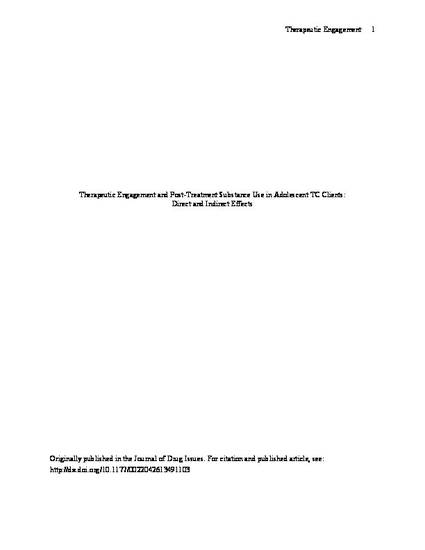
Article
Therapeutic Engagement and Post-Treatment Substance Use in Adolescent TC Clients: Direct and Indirect Effects
Journal of Drug Issues
(2014)
Abstract
The problem of adolescent drug use places a huge toll on society and a heavy burden on the criminal justice system. Despite the ability of therapeutic communities to lower drug relapse, a great deal remains unknown in terms of how the process of treatment actually works for adolescents. Using data collected as part of the Drug Abuse Treatment Outcomes Studies – Adolescents, this study examines the direct and indirect relationship between therapeutic engagement and post-treatment substance use. Though there are few direct effects from therapeutic engagement on substance use, findings suggest that those more engaged in treatment are more likely to complete treatment and, therefore, less likely to use substances. This suggests that instruments that evaluate therapeutic engagement are important in assessing involvement in treatment, and that programming designed to engage the adolescent in therapeutic community treatment should be utilized in order to reduce the risk of post-treatment relapse.
Keywords
- Substance Use,
- Desistance,
- Youth
Disciplines
Publication Date
2014
DOI
10.1177/0022042613491103
Citation Information
DeCamp, Whitney and Sami Abdel-Salam. (2014). Therapeutic Engagement and Post-Treatment Substance Use in Adolescent TC Clients: Direct and Indirect Effects. Journal of Drug Issues, 44, 22-36. doi:10.1177/0022042613491103
